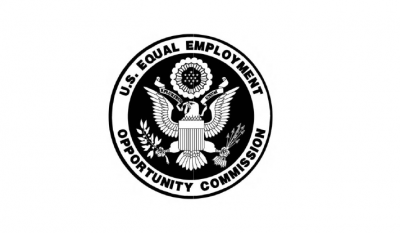The EEOC’s position that sexual orientation discrimination is a form of sex discrimination prohibited by Title VII has been upheld by a federal court. In EEOC v. Scott Medical Health Center
(Case 2:16-cv-00225-CB), the District Court for the Western District of Pennsylvania in Pittsburgh denied a motion to dismiss a sex discrimination lawsuit filed by the U.S. Equal Employment Opportunity Commission, ruling that sexual orientation discrimination is a form of sex discrimination prohibited by Title VII of the Civil Rights of 1964.
On March 1, 2016, EEOC filed the Scott Medical lawsuit, U.S. government’s first sex discrimination lawsuit based on sexual orientation. The EEOC’s discrimination complaint charged that a gay male employee was subjected to sex discrimination in the form of harassment because of his sexual orientation and then forced to quit his job rather than endure further harassment. In response to EEOC’s lawsuit, the defendant filed a motion to dismiss the case.
In a decision issued on Nov. 4, 2016, by U.S. District Judge Cathy Bissoon, the court denied Scott Medical Health Center’s motion to dismiss EEOC’s case. In its ruling, the court found that sexual orientation discrimination is a type of discrimination “because of sex,” which is barred by Title VII. Applying decisions of the U.S. Supreme Court’s finding that Title VII’s ban on sex discrimination includes adverse treatment of workers based on “sex stereotypes,” i.e. pre-conceived ideas of how a man or a woman should act or think, the federal court stated, “There is no more obvious form of sex stereotyping than making a determination that a person should conform to heterosexuality.”
The federal court concluded, “The Supreme Court’s recent opinion legalizing gay marriage demonstrates a growing recognition of the illegality of discrimination on the basis of sexual orientation. See Obergefell v. Hodges, 135 S. Ct. 2584, 2590 (2015) (“[N]ew insights and societal understandings can reveal unjustified inequality within our most fundamental institutions that once passed unnoticed and unchallenged.”). That someone can be subjected to a barrage of insults, humiliation, hostility and/or changes to the terms and conditions of their employment, based upon nothing more than the aggressor’s view of what it means to be a man or a woman, is exactly the evil Title VII was designed to eradicate.” While the federal court made a legal ruling in the case, to date there has been no trial or factual finding whether discrimination occurred.
The court’s decision in the Scott Medical case is consistent with EEOC’s reading of Title VII’s sex discrimination ban. As the federal law enforcement agency charged with interpreting and enforcing Title VII, EEOC has previously concluded that harassment and other discrimination because of sexual orientation is prohibited sex discrimination. On July 15, 2015, EEOC, in a federal sector decision, determined that sexual orientation discrimination is, by its very nature, discrimination because of sex. See Baldwin v. Dep’t of Transp., Appeal No. 0120133080 (July 15, 2015). In that case, EEOC explained the reasons why Title VII’s prohibition of sex discrimination includes discrimination because of sexual orientation: (1) sexual orientation discrimination necessarily involves treating workers less favorably because of their sex because sexual orientation as a concept cannot be understood without reference to sex; (2) sexual orientation discrimination is rooted in non-compliance with sex stereotypes and gender norms, and employment decisions based in such stereotypes and norms have long been found to be prohibited sex discrimination under Title VII; and (3) sexual orientation discrimination punishes workers because of their close personal association with members of a particular sex, such as marital and other personal relationships.
Addressing emerging and developing issues, especially coverage of lesbian, gay, bisexual and transgender individuals under Title VII’s sex discrimination provisions, is one of six national priorities identified by EEOC’s Strategic Enforcement Plan (SEP).




